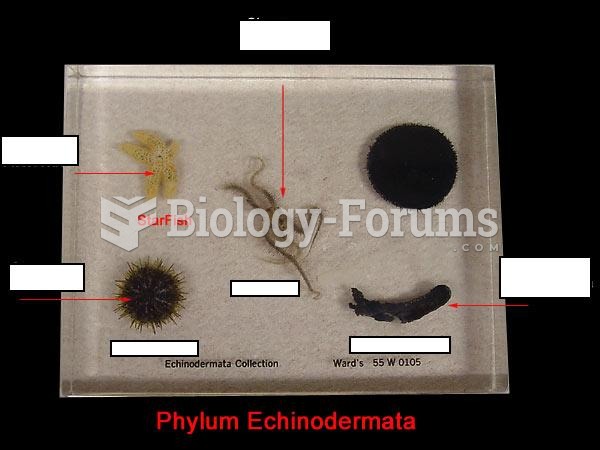|
|
|
You should not take more than 1,000 mg of vitamin E per day. Doses above this amount increase the risk of bleeding problems that can lead to a stroke.
Normal urine is sterile. It contains fluids, salts, and waste products. It is free of bacteria, viruses, and fungi.
More than 20 million Americans cite use of marijuana within the past 30 days, according to the National Survey on Drug Use and Health (NSDUH). More than 8 million admit to using it almost every day.
There are over 65,000 known species of protozoa. About 10,000 species are parasitic.
Though Candida and Aspergillus species are the most common fungal pathogens causing invasive fungal disease in the immunocompromised, infections due to previously uncommon hyaline and dematiaceous filamentous fungi are occurring more often today. Rare fungal infections, once accurately diagnosed, may require surgical debridement, immunotherapy, and newer antifungals used singly or in combination with older antifungals, on a case-by-case basis.
 Hong Kong is a strange situation. A British colony since 1842, it was handed back to China in 1997 a
Hong Kong is a strange situation. A British colony since 1842, it was handed back to China in 1997 a
 a) When standing, keep your weight over your front leg. b) Avoid placing your foot under the table. ...
a) When standing, keep your weight over your front leg. b) Avoid placing your foot under the table. ...





